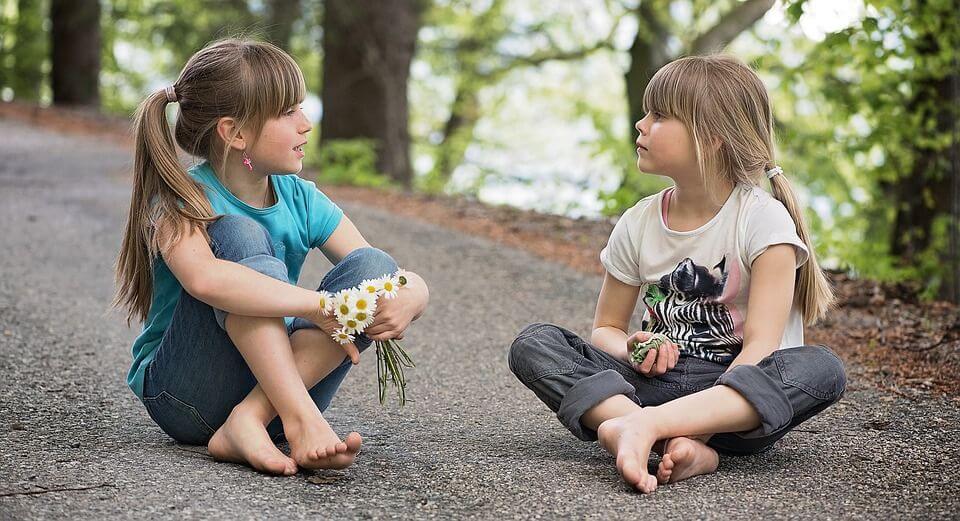Social skills for children and learning
Social skills are part of learning during the first academic years. It is a fundamental part of emotional development, social skills for children should be worked on during the infant and primary school years, so that when they reach the adolescent stage, they are able to put into practice empathetic and assertive behaviour.
At Laude San Pedro International College we insist on the importance of the emotional development of our students, through training focused on social skills for children and their implementation in real situations.
What are social skills
We could define social skills as the behaviours we develop during our social interactions. In general terms, they are the abilities we have to relate to others.
Most of the social skills we have are based on a particular capacity in each person, however, there is a fundamental part of learning in this process.
With regard to learning social skills, the first years of training are those that will, to a large extent, mark our ability to relate to others. It is true that we can always continue learning and that, during adult life, we are capable of continuing to acquire social skills, however, everything that we are capable of assimilating in the years prior to our adolescence is what will really influence the way we relate to others during our adult life.
Basic social skills during the learning period
An adult usually has all kinds of skills aimed at relating to other people. In the case of social skills for children, the aim is for them to assimilate a series of basic behaviours, from which they can develop appropriate social practices, both in the present and in the future.
The social skills that children learn are the following:
- Empathy: It is very important that they are able to put themselves in other people’s shoes.
- Attachment: It is about valuing the people who care for them and, in short, those they live with on a daily basis.
- Assertiveness: This is the defence of one’s own points of view, based on education and understanding of others.
- Conflict resolution: The ability to propose solutions in cases where there is a conflict.
- Self-control: The ability to control oneself is the origin of many later social skills.
- Expression: The ability to communicate one’s ideas, emotions, opinions, etc.
In this case we are talking about general social skills for children, these abilities become much more specific skills, which are the ones we put into practice in our daily lives.
Imitation and reinforcement in behavioural learning
In the case of children, the learning and practice of social skills is very different from the learning they carry out in other aspects of education. Beyond the theoretical basis, the process by which they really learn the importance of social skills is by putting them into practice in real situations.
Imitation and reinforcement are key in this process. When we talk about imitation, we are referring to the ability of children to observe behaviours and put them into practice. Many of their responses and emotional initiatives come from previous observation, which is why it is very important that both, schools and families, are coordinated when it comes to teaching social skills. The pupil will perceive a series of behaviours, which over time he or she will end up imitating.
With regard to reinforcement, learning social skills is also based on the responses of others to our behaviour. Little by little, the child gradually perceives how others respond to his or her actions, and this helps him or her to determine what his or her next social responses will be.
The school is a suitable place to put into practice skills related to social interaction, because the pupils are in spaces shared by other children, but it is also essential for them that their own home also serves as an example for learning social skills.
Activities for the development of social skills
There are many ways to encourage social skills in children during infant and primary school, these are some activities that help us to improve their emotional capacity.
- Dancing in a group: Music always helps us to learn, in this case, dancing together will allow us to interact with other people based on the rhythm and our own movements.
- The turtle: This simple game is based on cooperation. The process is very simple, a group of boys and girls carry a mat on their knees on their back, in a collaborative way they must prevent the mat from falling.
- Secret letters: This is based on a game in which the pupils choose a person in the classroom and write a letter to that person highlighting their qualities.
- Group collage: Making a collage in a group helps to encourage collaboration between classmates, with the aim of achieving a common good.
- The blindfolded path: One of the children has to walk a path blindfolded, while his or her classmates guide him or her to reach the goal.
- Introduce your friend: What we are looking for is for each child to introduce his or her friend, giving a complete description of another person.
- Mime with emotions: By means of body expressions, the pupil will represent emotions that we are going to propose to him/her, and the rest of the participants must guess what emotion it is.
Emotional education at Laude San Pedro International College
At San Pedro International College we develop a complete educational programme during all academic periods. In addition to the academic part, we add intense social and emotional learning, insisting on the importance of these skills.
Our aim is to create a learning space in which all our pupils can develop their social skills and assimilate the abilities that they will put into practice during their adult life.









